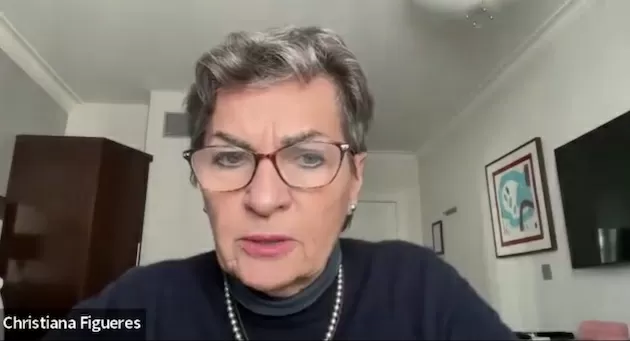Former UN Climate Chief Christiana Figueres praised the role of small island states in the fight against climate change and stressed the urgency of global decarbonisation, regardless of any obstacles or setbacks.
In a recent interview, Figueres expressed her admiration for the determination and resilience of small island states in advocating for strong international climate agreements. She highlighted their vulnerability to the impacts of climate change, such as rising sea levels and extreme weather events, and their courageous efforts to protect their communities and environment.
Small island states have long been at the forefront of the fight against climate change, despite contributing the least to global carbon emissions. Their small size and limited resources make them particularly vulnerable to the adverse effects of a warming planet, and yet they have shown great leadership and determination in calling for urgent action.
Figueres also emphasized the critical role that small island states play in keeping the integrity of international climate agreements. These nations have consistently pushed for more ambitious and binding targets, serving as a moral compass for larger and wealthier countries.
However, despite their valiant efforts, Figueres recognized that the world is still far behind in meeting the goals set in the Paris Agreement. She stated that the temperature targets set in the agreement are no longer sufficient, and much more needs to be done to keep global warming below 1.5 degrees Celsius.
She also addressed the ongoing political turmoil in the United States and its potential impact on global climate action. Figueres acknowledged that the US withdrawal from the Paris Agreement has caused a setback and uncertainty, but she firmly stated that the decarbonisation of the global economy is already irreversible, regardless of any “craziness” in US policies.
This statement comes at a time when many nations are ramping up their efforts to transition to renewable energy and reduce their carbon footprint. The rapid advancement of clean energy technologies is making the decarbonisation of the global economy a viable and necessary option.
Figueres stressed that the transition to a low-carbon society is not only necessary for the survival of small island states but also for the well-being and prosperity of all nations. She urged governments, businesses, and citizens to recognize this urgency and act with greater ambition and determination.
Despite the challenges and setbacks, Figueres remains optimistic about the future of global climate action, thanks to the unwavering commitment of small island states and the growing momentum of the clean energy transition. She believes that with strong leadership, innovative solutions, and collective action, we can still achieve the goals set in the Paris Agreement and secure a sustainable and prosperous future for all.
In her closing remarks, Figueres called for a global mindset shift towards a more sustainable and equitable future. She emphasized the need for a collaborative and inclusive approach, where all nations work together for the common goal of combating climate change and building a sustainable world for generations to come.
In conclusion, Figueres’ praise for the role of small island states serves as a powerful reminder of the crucial role they play in global climate action. Their determination, resilience, and leadership serve as an inspiration and motivation for all of us to do our part in the fight against climate change. With bold and decisive action, we can still achieve a sustainable and prosperous future for ourselves and future generations. Let us join hands and work towards a better world for all.



